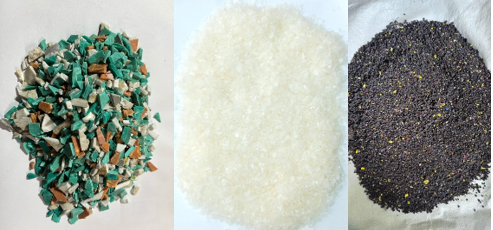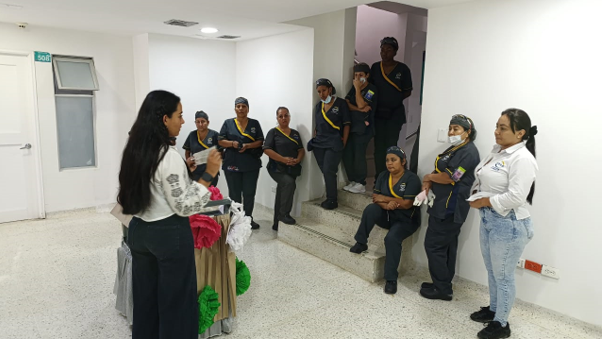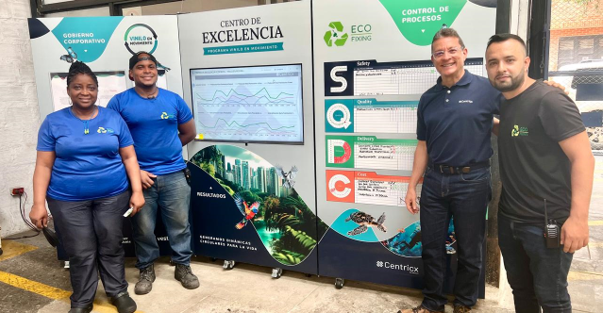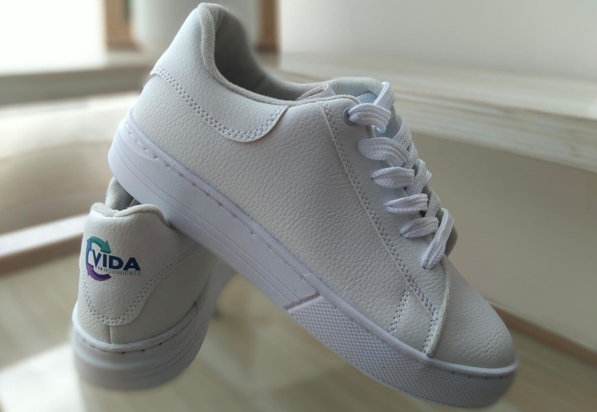PVC plastic is a durable essential material that plays a critical role in everyday life – from medical applications like blood bags and IVs to building materials and pipes that deliver clean water and sanitation. PVC supplies vital infrastructure to a world where 1 in 4 people have no clean water1 and 1 in 15 lack adequate housing2. PVC is also recyclable many times over and biocompatible for specialty medical uses, making it a true super material.
Despite its benefits, PVC—like all plastics—must be managed responsibly to minimize waste and maximize reuse. While PVC accounts for less than 3%3 of plastic waste globally (single-use plastic is the main contributor of plastic waste), it still accounts for several million metric tons of landfill material each year. Of that waste, estimates put the percentage that is recycled at 24% in Europe4 and 35% in the U.S.5.
Driven by the purpose to advance life around the world and accelerate decarbonization, Orbia Polymer Solutions leverages its position as the largest specialty PVC producer in the world and one of the top ten general PVC producers, to shape a more circular economy. Orbia Polymer Solutions works with policymakers and end users alike to address plastic waste. Orbia is a founding member of several PVC sustainable development organizations including VinylPlus in Europe and the Vinyl Sustainability Council and +Vantage Vinyl program in the U.S.

From left to right: Rigid polycolor recycled PVC scrap, flexible natural PVC scrap of IV bags, artificial leather scrap. Orbia takes discarded PVC and recycles it into material to create new products
Proving the Business Value of PVC Recycling
Orbia’s Polymer Solutions business Vestolit has launched – and scaled – a PVC recycling program called “Vinyl in Motion” across Latin America. Early results have demonstrated that PVC can contribute to the circular economy and generate business value simultaneously.
Orbia’s Vinyl in Motion team gathers PVC waste from consumers and industrial sources and reprocesses it into new products. As one example, in 2024 the program collected PVC medical waste from 80 medical centers and 650 home dialysis patients in Colombia as well as two medical centers and 70 patients in Mexico. In Colombia, Orbia is on track to expand its collection and reuse activities to 90% of the country's 2,500 health-care facilities in the next five years to help avoid PVC waste sent to landfill. Additionally, the Vinyl in Motion team collaborates with recyclers to recover discarded blister packaging and PVC pipes, further expanding the program’s reach.

Hospital workers attend an in-field training for Vinyl in Motion PVC collection and recycling
Once collected, discarded PVC materials are refined into compounds that can then be used in items such as manufacturing hoses, wire jackets, car mats and shoe soles. The Polymer Solutions business even incorporates some of the recycled materials into Orbia’s portfolio offerings, including pipes for Orbia Building & Infrastructure and the “Infinitude” compound line for Polymer Solutions Alphagary. In fact, Orbia's businesses are finding ways to incorporate several thousand tons of discarded PVC annually into their solutions. To put that in perspective, every 578 tons of recycled PVC result in the creation of 2,200 tons of new sustainable products through the program, ranging from those made entirely of recycled material to others that incorporate recycled PVC as part of a blended composition.
Creating Social Value Through VITA
Beyond reducing waste, Vinyl in Motion is also driving social impact through VITA, Orbia’s dedicated social impact initiative within the program. As part of VITA, Orbia partners with several different recyclers and supports them with larger facilities, transport equipment and relevant training. This has bolstered careers and local communities.

Recyclers sponsored through the VITA social program pose for a photo at Orbia Vestolit’s Center of Excellence for Vinyl in Motion
VITA also incorporates management and business development upskilling for recyclers in local communities in areas such as finance, health, safety, legal compliance and worker wellness to help localities adopt best business practices, find solutions to access capital and build circular networks while strengthening Orbia’s pipeline of local suppliers.
“In 2024, we have increased the positive impact we’re having on customers, communities and the environment. The Vinyl in Motion program in particular has created livelihoods for more than 100 families and has fostered the transformation of informal recycling outfits into real enterprises across Latin America. There’s incredible value in offering sustainable products that help to solve for the global resource and economic development issues of our time.”
– Nicholas P. Ballas Executive Vice President & President, Orbia Polymer Solutions (Vestolit)
Growing Industry Adoption of Recycled PVC
In 2024 the Vinyl in Motion program achieved several key milestones, successfully launching a vinyl artificial leather stream at a production rate of 10 tons per month, expanding the construction stream to meet increased demand from Orbia Building & Infrastructure at 60 tons per month and growing adoption from home dialysis patients and medical centers at an annual rate of 15%. Overall, the program grew 83% in 2024 compared to 2023 and Orbia expects to double its recycled PVC production capacity in 2025.
This rapid growth underscores a critical industry shift: companies are finding that they can incorporate recycled PVC into their products without compromising performance. To date, Orbia’s program has engaged more than 100 companies across all stages of the circular vinyl value chain. In 2025 and beyond, Orbia is expanding Vinyl in Motion to new markets in both Mexico and Brazil and extending the use of recycled PVC in new applications such as power cables.

Shoes made from recycled PVC from the Vinyl in Motion program
The Vinyl in Motion program demonstrates that sustainability and business value can go hand in hand. By scaling recycling efforts, investing in social impact and expanding industry adoption, Orbia is proving that PVC plays an important role in the circular economy. Orbia will continue to turn waste into opportunity and drive a more sustainable future for all.
This article is part of Orbia’s Megatrendsetters series, which explores how Orbia’s solutions address the transformative forces—“megatrends”—that are reshaping our world, from decarbonization and the circular economy to shifting supply chains and agribusiness to global water and digitalization. To learn more about Vinyl in Motion, visit Orbia Vestolit’s website here.
1. U.N. World Water Development Report 2023
2. Special Procedures of the Human Rights Council, UN General Assembly Report, 2023
3. Vinyl Institute, 6 Truths About Vinyl Report, 2017
4. VinylPlus 2024 Progress Report
5. The Baker Institute, Why Classifying PVC as Hazardous Waste Undermines America's Zero-Waste and Energy Transition Goals, 2023
